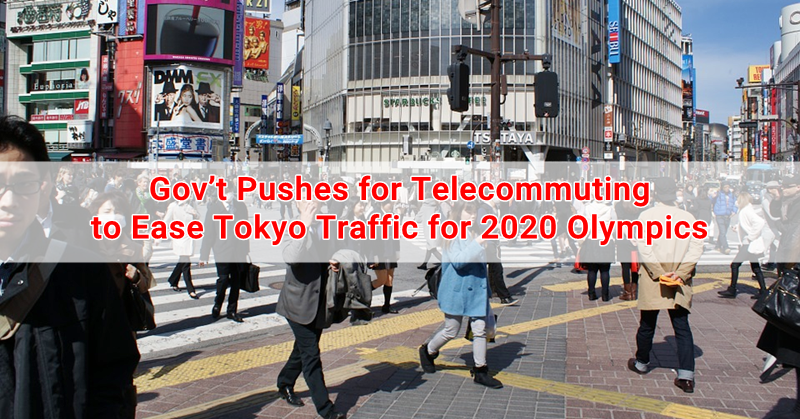As early as now, the Japanese government is already looking at ways to ease traffic congestion along with other health and safety measures within the Tokyo metro area where the 2020 Olympic and Paralympic Games will take place.
In line with this, the Japanese government is encouraging more companies to adopt telecommuting, with the hopes of letting employees work from home or away from the office to lessen the burden of traffic congestion in the streets and public transportation systems.
Japan Pushes for Telecommuting as a Solution to Ease Traffic for 2020 Olympics
The government is already looking at some 2,000 companies and organizations to take part in the “Telework Days” campaign, which will run during the week until Friday. However, many experts shared that there are still many companies who are reluctant to invest on video teleconference systems and other relevant infrastructures.
The campaign, which had been supported by some 950 organizations was launched by the government by as early as last year. The date on which the Olympic Games will open, July 24, has been recognized as “Telework Day.”
Among the companies set to take part in the campaign this year are Japan Airlines Co. and Ricoh Co. The latter had expanded its telecommuting system last April to cover all of its 8,000 personnel, and is currently being used by over 1,500 of their employees. Mobile carrier KDDI Corp. which had also allowed employees to work at shared places had taken part in the government’s effort to minimize traffic congestion within the Tokyo Metro area.
According to a survey done by the Ministry of Internal Affairs and Communications, only 13.9 per cent of companies with over 100 employees had introduced telecommuting since last year.
The drive to push for telecommuting had been among Prime Minister Shinzo Abe’s initiatives for wider acceptance towards flexible working styles to address the country’s culture of working long hours, and at the same time improve productivity despite the current issue with labour shortage.
